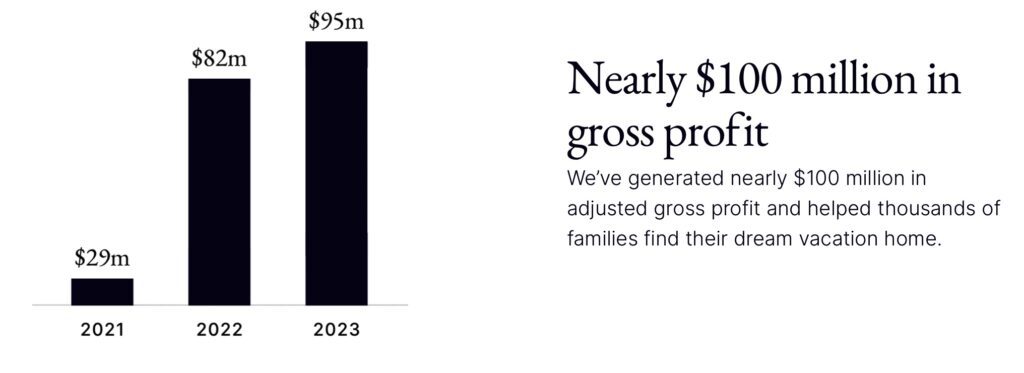Skift Take
It’s great that individuals can get in on a piece of the startup action â as long as they understand the investment.
It’s rare for one founder to publicly disparage another company’s effort to raise funding. But Vacasa founder Eric Breon took to LinkedIn this week to say Pacaso’s current effort to raise money “disgusts” him and “seems designed to deceive.”
Pacaso is a real estate company that enables people to invest in luxury vacation rentals through fractional ownership. Breon’s comments were in response to Pacaso’s announcement that it was enabling individuals to invest in the private equity-backed company with minimum investments of $1,000 plus a 3.5% fee.
Such fundraises in private companies are usually closed to the public.
Pacaso, which has total equity financing of more than $230 million, is seeking to raise another $75 million.
“I rarely comment on LinkedIn, but this disgusts me,” wrote Breon, who left Vacasa in early 2020. Vacasa and Pacaso aren’t direct competitors. Vacasa manages vacation rentals, Pacasa has more of a real estate investment bent.
Breon took issue with the way Pacaso promoted its financial results to potential investors.


“The gross profit chart shows $29M in ’21, $82M in ’22, and $95M in ’23,” Breon wrote. “This makes it look like 16% growth YOY (which isnât that impressive) – but as this chart is cumulative, the real story is far worse: gross profit was $29M in ’21, $44M in ’22, and only $15M in ’23 – a 66% YOY decline.”
Breon wrote that the offering is “uniquely unfavorable” to retail investors because they wouldn’t receive any returns until the prior private equity investors recoup all of their investments.
Pacaso co-founder Spencer Rascoff, who also co-founded Zillow, had written in his own LinkedIn post that the Pacaso offering gives “everyone the chance to invest in innovative companies, not just big VCs.” He wrote that he regretted that when Zillow went public in 2011 that there wasn’t “early investment opportunities to retail investors.”
Breon countered: “Or maybe the big VCs have no interest in investing in a company that loses tens of millions annually as revenues plummet.”
Pacaso Replies
When contacted about Breon’s LinkedIn post about Pacaso, spokesperson Chrissy Bruchey replied via email:
- It’s standard to use cumulative growth numbers in investor decks, as it did on its investor relations website, “as it illustrates the long-term scale and impact of our operations.” The company was fully transparent in financial statements and in the offering circular [the SEC filing] about year-over-year growth “ensuring investors have a comprehensive view of our performance.”
- On the decline in gross profits in 2023: Bruchey cited the post-Covid real estate slowdown. “In response, our team moved quickly to prioritize our most important, profitable markets and proactively manage inventory on our balance sheet. We made very intentional decisions to forgo growth in favor of a faster path to profitability. This included implementing several cost-reduction initiatives throughout 2023, leading to a material reduction in cash burn year-over-year, which we were pleased with.”
- Prior Series A, B, and C preferred investors would only move to the front of the line to recoup their investments if there was a liquidity event that yielded less than their original investments. Otherwise, “all equity holders will participate on equal footing.” If there is an IPO, then the preferred investors’ downside protections disappear, “and all equity holders would share equally in any returns.”
- On the question of whether Pacaso is opening investments to individual investors because VCs are reluctant to invest in a money-losing company: âOur investors, venture capital partners, and stakeholders continue to express confidence in Pacaso. Democratizing access is core to our mission and we firmly believe in providing everyone with the opportunity to invest in innovative companies, not just large venture capital firms.â
Founded in 2020, Pacaso is backed by Maveron, Softbank, Greycroft and Fifth Wall, among others.

